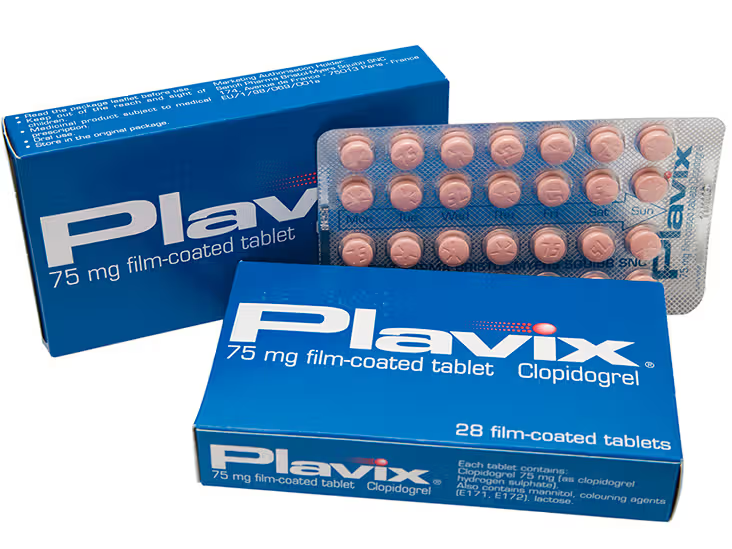How Pharmacogenomics is Shaping the Future of Vaccine Development and Efficacy
Pharmacogenomics, the confluence of pharmacology and genomics, is poised to transform vaccine development and efficacy. It leverages genetic profiling to create vaccine therapies that align with individual genetic variations. This heralds a new epoch in personalized medicine1.
Progress in molecular pathology and diagnostics has catalyzed the creation of advanced biological assays. These assays can precisely identify disease-specific biomarkers or pathogens1. Such innovations not only direct targeted therapies but also empower clinicians to forecast treatment outcomes. This enhances patient care through precise testing1.
Molecular diagnostics have profoundly influenced disease detection and management. They enable the identification of disease-specific biomarkers for early detection, accurate diagnosis, prognosis, and treatment monitoring1. This is especially vital in infectious diseases, where swift and precise detection of causative agents, like SARS-CoV-2, facilitates the development of targeted therapeutics and vaccines1.

The importance of molecular diagnostics lies in their capacity to detect diseases at their inception. This enables timely intervention, simplifies treatment complexities, and fosters successful therapeutic outcomes1. Furthermore, these diagnostic tools can identify drug-resistant strains of infectious agents. This guidance helps clinicians in choosing the right antimicrobial therapies, optimizing patient outcomes, and minimizing further resistance1.
The fusion of genomic data with electronic health records and machine learning algorithms promises to revolutionize precision medicine in genetic analysis. This synergy is expected to enhance therapeutic outcomes and diminish adverse effects1. It sets the stage for personalized vaccine development and precision vaccinology, tailoring vaccine formulations and dosing to individual genetic profiles.
Emergence of Systems Vaccinology
The advent of systems vaccinology has transformed our understanding of vaccine development and efficacy. It harnesses omics data, encompassing genomics, transcriptomics, and proteomics, to elucidate the intricate interactions within the immune system post-vaccination2.
Genomics uncovers genetic variations that modulate an individual’s vaccine response2. Conversely, transcriptomics and proteomics delve into the molecular signatures and pathways activated by vaccination2. This integration enables researchers to pinpoint crucial biomarkers and predictive signatures, facilitating the creation of more tailored and potent vaccines2.
Leveraging Omics Data for Vaccine Development
The advent of high-throughput technologies, such as DNA microarrays and high-throughput sequencing, has been pivotal in systems vaccinology3. These innovations empower researchers to grasp the complex interactions within biological systems, notably the immune response to vaccines3.
Systems biology methodologies have been extensively employed to dissect the global immune response to vaccination in humans3. This comprehensive perspective aids in identifying pivotal pathways, networks, and biomarkers, thereby enhancing vaccine design and predicting efficacy3.
Integrating Genomics, Transcriptomics, and Proteomics
The fusion of genomics, transcriptomics, and proteomics data is fundamental in systems vaccinology2. Genomic studies reveal genetic factors influencing vaccine response, while transcriptomic and proteomic analyses shed light on the dynamic shifts in gene expression and protein profiles during the immune response2.
By amalgamating these multi-omics data, researchers forge predictive models of vaccine efficacy and safety, tailored to specific demographics or individuals2. This personalized or precision vaccinology approach promises to refine vaccine development, ensuring more precise and effective immunization strategies2.
“Systems vaccinology aims to develop predictive models of vaccine efficacy in human populations.”4
The synergy of genomics, transcriptomics, and proteomics data is a cornerstone of systems vaccinology, offering a comprehensive view of the immune response to vaccination2. By leveraging these multi-omics data, researchers can identify pivotal biomarkers and craft personalized vaccine strategies, marking a path towards more effective and targeted immunization2.
Identifying Genetic Determinants of Vaccine Response
Pharmacogenomics has transformed our comprehension of how genetic variations affect an individual’s vaccine response. Through the analysis of genetic determinants, researchers can now forecast an individual’s vaccine response more accurately. This enables the creation of more tailored and effective immunization strategies5.
Studies have underscored the pivotal role of genetics in vaccine responsiveness. Interindividual variations in vaccine efficacy and toxicity were discussed in a Toxicology study in 2010, revealing disparate response rates.5 Moreover, genomic advancements have facilitated the development of antibacterial vaccines, marking significant progress in vaccine research.5
The advent of personalized vaccines and vaccinomics has been noted, emphasizing individualized vaccinology in the 21st century.5 This approach acknowledges that genes significantly influence vaccine responsiveness, as demonstrated by twin studies on vaccine failure.5
Researchers have employed genome-wide association studies to pinpoint genetic variations affecting immune responsiveness, highlighting the critical role of genomics in contemporary vaccine development.5
| Genetic Determinants of Vaccine Response | Key Findings |
|---|---|
| Interindividual variations in vaccine efficacy and toxicity | Differences in response rates observed in a Toxicology study5 |
| Genomic advancements and vaccine development | Genomics and proteomics contributed to antibacterial vaccine development5 |
| Personalized vaccines and vaccinomics | Individualized vaccinology emerged in the 21st century5 |
| Genetic contribution to vaccine failure | Twin studies determined the genetic role in vaccine responsiveness5 |
| Genome-wide association studies and immune responsiveness | Identified genetic variations influencing immune response5 |
By integrating these insights, healthcare providers can now customize vaccine therapies to an individual’s unique genetic profile. This overcomes genetic barriers to vaccine efficacy, ensuring more personalized and effective immunization strategies5.
“The role of genomics in vaccine and drug design for emerging infectious diseases was emphasized, showcasing the key importance of genomics in modern vaccine development.”5
Personalized Vaccine Development and Precision Vaccinology
The advent of pharmacogenomics marks a significant shift towards personalized vaccine development and precision vaccinology6. Through the identification of genetic variations influencing vaccine response, researchers can now craft targeted immunization plans. These plans aim to overcome genetic barriers to vaccine efficacy6. The approach involves customizing adjuvants and dosing strategies to an individual’s genetic profile. This ensures vaccines are optimized for maximum effectiveness and minimized adverse reactions6.
Overcoming Genetic Barriers to Vaccine Efficacy
Genetic factors are pivotal in determining an individual’s vaccine response5. Variability in vaccine efficacy and toxicity stems from genetic differences, leading to disparate responses among individuals5. By grasping these genetic factors, researchers can formulate personalized vaccine formulations. These are tailored to an individual’s genetic profile, enhancing overall vaccine efficacy and reducing adverse reaction risks.
Tailoring Adjuvants and Dosing Strategies
Precision vaccinology also entails the customization of adjuvants and dosing strategies based on individual genetic profiles6. Adjuvants are essential in modern vaccines, as they amplify the immune response and boost vaccine efficacy6. By choosing adjuvants and dosing regimens aligned with an individual’s genetic makeup, healthcare providers can enhance vaccine effectiveness. This is done while minimizing adverse event risks6.
| Vaccine Platform | Characteristics |
|---|---|
| Traditional Vaccines | Utilize inactivated or attenuated pathogens, protein subunits, or viral vectors, offering disease prevention6. |
| mRNA Vaccines | Can be designed and synthesized in weeks, showing unprecedented flexibility and speed in response to emerging infectious diseases6. Demonstrate excellent safety profiles, high transfection efficiency, and robust immune responses when using lipid-based nanoparticles (LNPs) as delivery carriers6. |
“Pharmacogenomics has ushered in the era of personalized vaccine development and precision vaccinology, allowing researchers to overcome genetic barriers and tailor vaccines for maximum effectiveness.”
The future of vaccine development is deeply intertwined with pharmacogenomics, promising personalized, precision-based immunization strategies. These strategies are tailored to each individual’s unique genetic profile7. This approach promises enhanced vaccine efficacy, reduced adverse events, and ultimately, superior health outcomes for patients7.
Immune Monitoring and Correlates of Protection
Pharmacogenomics has transformed the field of vaccine research, enabling a deeper exploration of the immune response to vaccines. Through the analysis of transcriptional signatures8 and the identification of biomarkers8, researchers uncover the molecular intricacies of vaccine-induced immunity. This understanding is pivotal for establishing reliable correlates of protection8, guiding the creation of more potent vaccines and tailored vaccination regimens.
Transcriptional Signatures and Biomarkers
Advances in omics technologies8 have facilitated the detection of unique transcriptional signatures8 linked to vaccine-induced immune responses. These signatures function as biomarkers8 to forecast vaccine efficacy, thereby informing the development of more individualized vaccination strategies. By harnessing these insights, researchers can refine vaccine formulations, dosing schedules, and adjuvants to bolster immune responses and elevate vaccine efficacy.
“The identification of reliable correlates of protection is a critical step in the development of more effective vaccines and personalized vaccination strategies.”
| Genetic Factors | Immune Response |
|---|---|
Through pharmacogenomic approaches, researchers can comprehensively understand the genetic and molecular determinants of vaccine-induced immune responses. This knowledge is essential for crafting personalized vaccination strategies, focusing on specific genetic and immunological profiles to enhance vaccine efficacy and offer superior protection against infectious diseases.
How Pharmacogenomics is Shaping the Future of Vaccine Development and Efficacy
Pharmacogenomics, the study of how genetic makeup influences drug response, is transforming vaccine development and efficacy. By leveraging genetic information, researchers can optimize vaccine formulations, dosing regimens, and delivery strategies. This personalized approach to vaccinology has the potential to revolutionize disease prevention and management, leading to more targeted and effective vaccination programs.
Understanding genetic determinants of vaccine response10 is a key aspect of this approach. Researchers can identify genetic variations that influence an individual’s immune response to vaccines. This allows for the development of tailored formulations that address these differences. Such knowledge can help overcome genetic barriers to vaccine efficacy, ensuring immunizations are more effective for a broader population.
Furthermore, pharmacogenomics is shaping vaccine development by enabling the integration of various “omics” data, including genomics, transcriptomics, and proteomics11. This holistic approach provides a deeper understanding of the complex mechanisms underlying the immune response to vaccines. It leads to the development of more effective and personalized immunization strategies.
As pharmacogenomics continues to evolve, it will play an increasingly crucial role in optimizing vaccine efficacy and safety. By leveraging genetic information, healthcare providers can tailor vaccine selection, dosing, and delivery to individual patients. This ultimately improves health outcomes and reduces the burden of infectious diseases.
“Pharmacogenomics holds the key to unlocking the full potential of personalized vaccinology, paving the way for a future where immunizations are highly targeted and effective for each individual.”
Pharmacogenomic Approaches in Vaccine Clinical Trials
The integration of12 pharmacogenomics is revolutionizing vaccine clinical trials. By incorporating genomic data, researchers can discern the genetic determinants of vaccine efficacy and safety12. This enables the identification of genetic markers predictive of vaccine outcomes, facilitating the selection of optimal participants and dosing regimens12.
Integrating Genomic Data in Trial Design
The inclusion of pharmacogenomic approaches in vaccine trials is pivotal for personalized immunization strategies12. Utilizing genomic data, researchers can design trials that align with specific genetic profiles. This ensures the study population mirrors the target population, enhancing trial success12. The integration of12 genomic data in trial design facilitates more efficient and effective12 vaccine trials, ultimately enhancing patient outcomes and advancing precision vaccinology12.

By integrating pharmacogenomic data into12 vaccine trials, researchers can forecast individual vaccine responses, refine dosing regimens, and pinpoint genetic factors influencing vaccine efficacy and safety12. This personalized vaccine development approach has the potential to transform the field, enabling more effective and tailored immunization strategies that account for individual genetic profiles.
“The integration of pharmacogenomics in vaccine clinical trials is crucial for the development of personalized and precision-based immunization strategies.”
Challenges and Ethical Considerations
The potential of pharmacogenomics in vaccine development is vast, yet significant challenges and ethical considerations must be addressed. Interpreting and translating genetic data into actionable clinical decisions necessitates specialized training and resources for healthcare providers13. Moreover, ethical, legal, and social implications of pharmacogenomic testing, such as patient privacy, consent, and equitable access, demand attention.
Data Interpretation and Implementation Hurdles
Integrating pharmacogenomics into clinical practice faces substantial hurdles, particularly in accurately interpreting and applying genetic data to guide treatment decisions. Genetic testing results can vary widely, and healthcare providers may lack the necessary expertise to interpret and translate these findings into effective personalized interventions13. Overcoming these implementation challenges will require extensive education, training, and collaborative efforts between researchers, clinicians, and healthcare systems.
Addressing Healthcare Disparities
Groups experiencing health disparities in the U.S. are primarily racially minoritized populations affected by social determinants, leading to socioeconomic disadvantage and health inequities13. The conditions influencing health outcomes, such as economic policies, development agendas, and social norms,13 impact access to healthcare and treatment efficacy, particularly for these underserved populations. Efforts are needed to ensure that the implementation of pharmacogenomics in clinical practice does not exacerbate existing healthcare disparities, and that all individuals have equal access to these advancements.
“Racial health disparities are exacerbated by the use of race as a biological variable in clinical research, which can lead to provider implicit bias and suboptimal treatment decisions.”
Pharmacogenomics research advocates categorizing populations based on shared ancestral origin rather than self-reported race and ethnicity, emphasizing the importance of accurate genetic data representation13. This approach aims to address equitable language and classification of genetic variations, highlighting the need for individualized care delivery and the reduction of healthcare disparities.
Overcoming the challenges and ethical considerations in the integration of pharmacogenomics into vaccine development will require a multifaceted approach. Healthcare providers must be equipped with the necessary training and resources to interpret and apply genetic data effectively. Additionally, the lack of equitable non-European representation in PGx research creates a gap in understanding genetic diversity, necessitating a focus on identifying DNA-based genetic ancestry for improved health outcomes13. By addressing these hurdles and ensuring equitable access, the transformative potential of pharmacogenomics can be realized in the field of vaccine development and personalized medicine1314.
Vaccinomics and Adversomics in the Era of Precision Medicine
The advent of pharmacogenomics in vaccine development has birthed the disciplines of vaccinomics and adversomics. Vaccinomics delves into the genetic and molecular elements that shape vaccine-induced immune responses. Conversely, adversomics investigates the genetic underpinnings of adverse vaccine reactions15. These burgeoning fields are pivotal to the era of precision medicine, where vaccination strategies are personalized to enhance efficacy and reduce adverse event risks16.
In the realm of vaccinology, a subset of individuals experiences adverse reactions, sometimes severe, despite the licensure of vaccines7. Precision vaccinology is bolstered by the burgeoning research output, creating vast “big data” repositories. These enable the application of multi-omics, immunoinformatics, and AI/machine learning technologies to reexamine vaccines and immunology through innovative lenses7.
Ontologies such as the Vaccine Ontology (VO) and Ontology of Vaccine Adverse Events (OVAE) have been developed to standardize vaccine, vaccine component, host response, and adverse event representations. This advancement propels precision vaccinology forward7. Precision medicine seeks to customize medical interventions, including vaccines, based on individual patients’ characteristics or sub-populations with analogous immunity-related traits7.
Efforts to develop personalized vaccines and predict immune responses to them are underway to boost vaccine efficacy. Statistical and ontological analyses have been performed on adverse events linked to various vaccines7. As vaccinomics and adversomics progress, they will be instrumental in shaping the future of vaccine development and efficacy within the context of precision medicine15.
Future Directions and Translational Applications
The evolution of pharmacogenomics in vaccine development heralds a new era, driven by the profound understanding of the human genome. The advent of next-generation sequencing and high-throughput genotyping has democratized genetic testing, rendering it both accessible and economically viable6. This technological leap, coupled with the relentless pursuit of knowledge and collaborative endeavors, heralds the imminent fusion of pharmacogenomics into everyday clinical routines. Such integration promises a vaccination paradigm that is not only more personalized but also significantly more effective6.
The translational applications of pharmacogenomics are poised to transform healthcare delivery, enhancing patient outcomes and redefining the management of infectious diseases. mRNA vaccines, capable of rapid design and synthesis, offer unparalleled agility in addressing emerging threats or viral mutations6. Genetic vaccination, by inducing both humoral and cellular immunities, may necessitate reduced dosages compared to conventional vaccines6.
The trajectory of pharmacogenomics is inextricably linked to the integration of omics data, encompassing genomics, transcriptomics, and proteomics, to unlock the potential of personalized vaccine development and precision vaccinology6. This comprehensive methodology, complemented by advancements in immune monitoring and the identification of correlates of protection, will facilitate a vaccination strategy that is both targeted and efficacious. Such a strategy is destined to enhance healthcare outcomes and foster a more equitable society.
Source Links
- Advances in Molecular Medicine: Unravelling Disease Complexity and Pioneering Precision Healthcare – https://www.ncbi.nlm.nih.gov/pmc/articles/PMC10531697/
- Systems Biology Approaches to New Vaccine Development – https://www.ncbi.nlm.nih.gov/pmc/articles/PMC3129601/
- SYSTEMS VACCINOLOGY – The Science and Applications of Synthetic and Systems Biology – https://www.ncbi.nlm.nih.gov/books/NBK84456/
- Predictive Markers of Immunogenicity and Efficacy for Human Vaccines – https://www.mdpi.com/2076-393X/9/6/579
- Genetics and Vaccines in the Era of Personalized Medicine – https://www.ncbi.nlm.nih.gov/pmc/articles/PMC4412964/
- Recent Advancement in mRNA Vaccine Development and Applications – https://www.mdpi.com/1999-4923/15/7/1972
- Ontology-based Precision Vaccinology for Deep Mechanism Understanding and Precision Vaccine Development – https://ouci.dntb.gov.ua/en/works/lmxL3Yn4/
- Vaccines – https://link.springer.com/chapter/10.1007/978-3-030-25553-4_15
- High-resolution African HLA resource uncovers HLA-DRB1 expression effects underlying vaccine response – Nature Medicine – https://www.nature.com/articles/s41591-024-02944-5
- How pharmacogenomics enables precision approach to care – https://www.ama-assn.org/delivering-care/precision-medicine/how-pharmacogenomics-enables-precision-approach-care
- Frontiers | A Snapshot of the Global Race for Vaccines Targeting SARS-CoV-2 and the COVID-19 Pandemic – https://www.frontiersin.org/journals/pharmacology/articles/10.3389/fphar.2020.00937/full
- Scientific publications | European Medicines Agency (EMA) – https://www.ema.europa.eu/en/news-and-events/publications/scientific-publications
- The Intersection between Pharmacogenomics and Health Equity: A Case Example – https://www.mdpi.com/2226-4787/11/6/186
- Immunoinformatics and tick vaccinology – https://www.explorationpub.com/Journals/ei/Article/100385
- The Art of Oncoimmunovaccinomics – https://www.scirp.org/journal/paperinformation?paperid=113379
- The Art of Oncoimmunovaccinomics – https://www.scirp.org/pdf/wjv_2021112413583604.pdf






